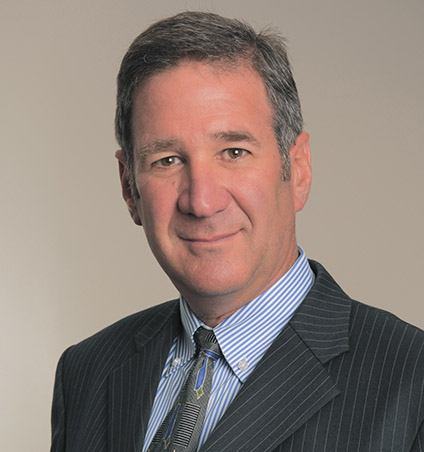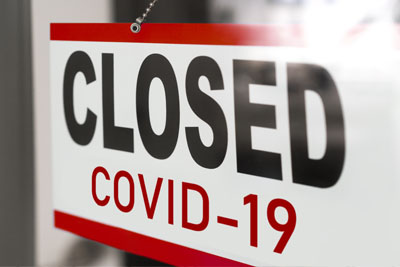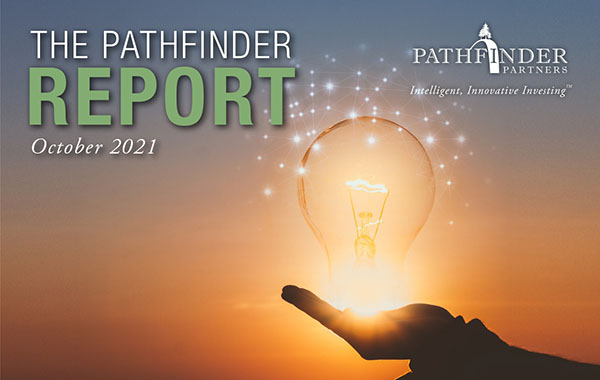Charting the Course
Maybe It’s Time to Rethink a Few Things
By Mitch Siegler, Senior Managing Director
 “Progress is impossible without change. Those who cannot change their minds cannot change anything.” - George Bernard Shaw, Playwright/ Nobel Prizewinner for Literature
“Progress is impossible without change. Those who cannot change their minds cannot change anything.” - George Bernard Shaw, Playwright/ Nobel Prizewinner for Literature
In “Think Again”, Wharton organizational psychologist and New York Times best-selling author Adam Grant disproves the adage that you should never change your answer on an exam because the odds are you’ll change a correct answer to an incorrect one. He cites a study of 1,500 students which found this occurred only one time in four; half the time, first instincts were wrong and wrong answers were changed to right ones. The reason: the act of thinking deeply about whether you should change the answer rather than blindly remaining anchored to your initial answer leads to a better result.
Sadly, many of us have an aversion to rethinking. We prefer the certainty of a predictable world and a stable environment. Flexibility doesn’t come naturally to many in this complex, modern and rather rigid world. Change is difficult.
Consider how crazy things became during the pandemic as our lives were upended and we learned new ways of doing so many things with lightning speed. Many feel that questioning ourselves, our thinking and our decision making makes life more unpredictable. The opposite is often true.
Let’s examine rethinking through four prisms: the pandemic; companies which failed to adapt; social media; and investor attitudes. And let’s explore a few strategies for strengthening our own rethinking muscles and improving our rethinking mindsets.
 Covid-19
Covid-19
During our lifetimes, has there ever been a more critical time for rethinking? During the pandemic, world leaders were S-L-O-W to rethink their assumptions, which set the stage for further complacency and denial by ordinary people. The result: countless unnecessary deaths and prolonged economic destruction.
There are just a handful of Covid cases. Surely, Covid won’t affect our nation. Even if it does, it probably won’t be deadlier than the flu. And even if it is, it won’t be transmitted by those without symptoms. And even if we’re wrong about all of that, surely our best-in-class health care system will keep us out of harm’s way. Blind faith, arrogance and absolute certainty led many to cling to yesterday’s bad ideas.
The pandemic has prompted many others to rethink long-held beliefs: Is it safe to work in an office, fly on an airplane, eat indoors at a restaurant or hug our grandparents? Many are still wrestling with these and other weighty questions. Meanwhile, whoever considered that we might not be able to purchase hand sanitizer or toilet paper at the drop of a hat?
Many of those who struggled emotionally during the pandemic also clung to their pre-pandemic habits and mindsets. Many who thrived, thought differently, shifted gears, and operated in new and different ways.
Companies Which Failed to Adapt
When asked “How did you go bankrupt?”, Hemingway’s character in The Sun Also Rises replied “Two ways: gradually, then suddenly.” It’s the same with formerly great companies which lost their way.
We’ve all heard stories of once great companies which weren’t sufficiently nimble, creative, or introspective to adapt to changing circumstances. Not only didn’t they continue to thrive, many didn’t even survive. Blackberry. Kodak. Polaroid. Sears. Blockbuster. Toys R Us. The list goes on. Many had demonstrated decades of success before failing. What happened? There were many contributing factors, of course, but at the core these former bellwether organizations failed at rethinking. They were complacent about their positions in the marketplace and lackadaisical about changing course.
Social Media and the Importance of Divergent Ideas
Take social media. Please. Facebook and Instagram are built around the idea that humans are most comfortable with views and opinions most like their own. It’s a rare breed who seeks out divergent news sources, holds contrarian opinions and opens herself enthusiastically to others with opposing viewpoints. This explains, in large part, why Americans have become so polarized, so tribal with their political and social views.
Emotionally healthy people regularly try new things – they expose themselves to new interests, hobbies, art, and entertainment. They seek out others with views and opinions which are different from their own. They curate multiple sources of news and information – many which seem to be in editorial conflict with each other. These consumers of information are rare and they’re at odds with the financial objectives of a company like Facebook – if more people took this approach, FB’s business model would be seriously threatened.
It’s always a good time to shake things up, read something new, walk away from something old and open yourself up to others with fundamentally different viewpoints. This form of rethinking can help get us out of our comfort zones, spur curiosity and spark innovation. If more people took this approach, we might just find more common ground and understanding.
 Stock Market Investing
Stock Market Investing
Investors have realized outsized returns since the March 2020 market lows. Today, signs of heightened risk are everywhere. China. Washington, D.C. Atlanta – where the Center for Disease Control is headquartered. Jackson Hole – home to the Fed’s economic symposiums.
Today, individual investors’ stock holdings are at record levels and many investors do not regularly rebalance their portfolios, pursue hedging strategies or shift to cash to protect against a market decline. If the market moves to a correction or – gasp – a bear market, most investors will shrug their shoulders, shed a few tears, and say “What could I have possibly done to anticipate or prepare for this?” They will have thought consistently, linearly, and incorrectly and will take great solace in the fact that they are not alone, that they suffered the exact same fate as so many of their Facebook friends.
 Being Open to Rethinking Presents Opportunities for Growth
Being Open to Rethinking Presents Opportunities for Growth
Arrogant people and companies are unbending in their certainty. Their pride creates a sense of conviction, which can be an obstacle to experimentation and innovation. Theirs is the old way of thinking. Great leaders and organizations are often characterized by humility. They exhibit doubt, which leads to curiosity. They are unafraid of failure, eager to explore creative destruction. Humility can make them open to rethinking, leading to experimentation, learning and new discoveries.
At Pathfinder, we pride ourselves on taking fresh approaches to our business, walking away from tried-and-true formulas, and experimenting with new things. We’ve tried to instill this ethos in our team, and we’ve benefitted from performance that exceeded our expectations and new ideas that we’d not previously considered.
As we prepare to enter a new phase – with booster shots, offices reopening and more travel – perhaps now is good time to question some of our old assumptions and open ourselves to more rethinking.
Mitch Siegler is Senior Managing Director of Pathfinder Partners. Prior to co-founding Pathfinder in 2006, Mitch founded and served as CEO of several companies and was a partner with an investment banking and venture capital firm. He can be reached at msiegler@pathfinderfunds.com.
Share this Article
IN THIS ISSUE
PATHFINDER PARTNERS INCOME FUND, L.P.
A Stablized Multifamily Fund
CHARTING THE COURSE
Maybe It’s Time to Rethink a Few Things
FINDING YOUR PATH
The Customer Service Conundrum
GUEST FEATURE
Putting Higher Interest Rates into Perspective
ZEITGEIST
Sign of the Times
TRAILBLAZING
Red Hawk, Castle Rock (Denver), CO
NOTABLES AND QUOTABLES
Collaboration
